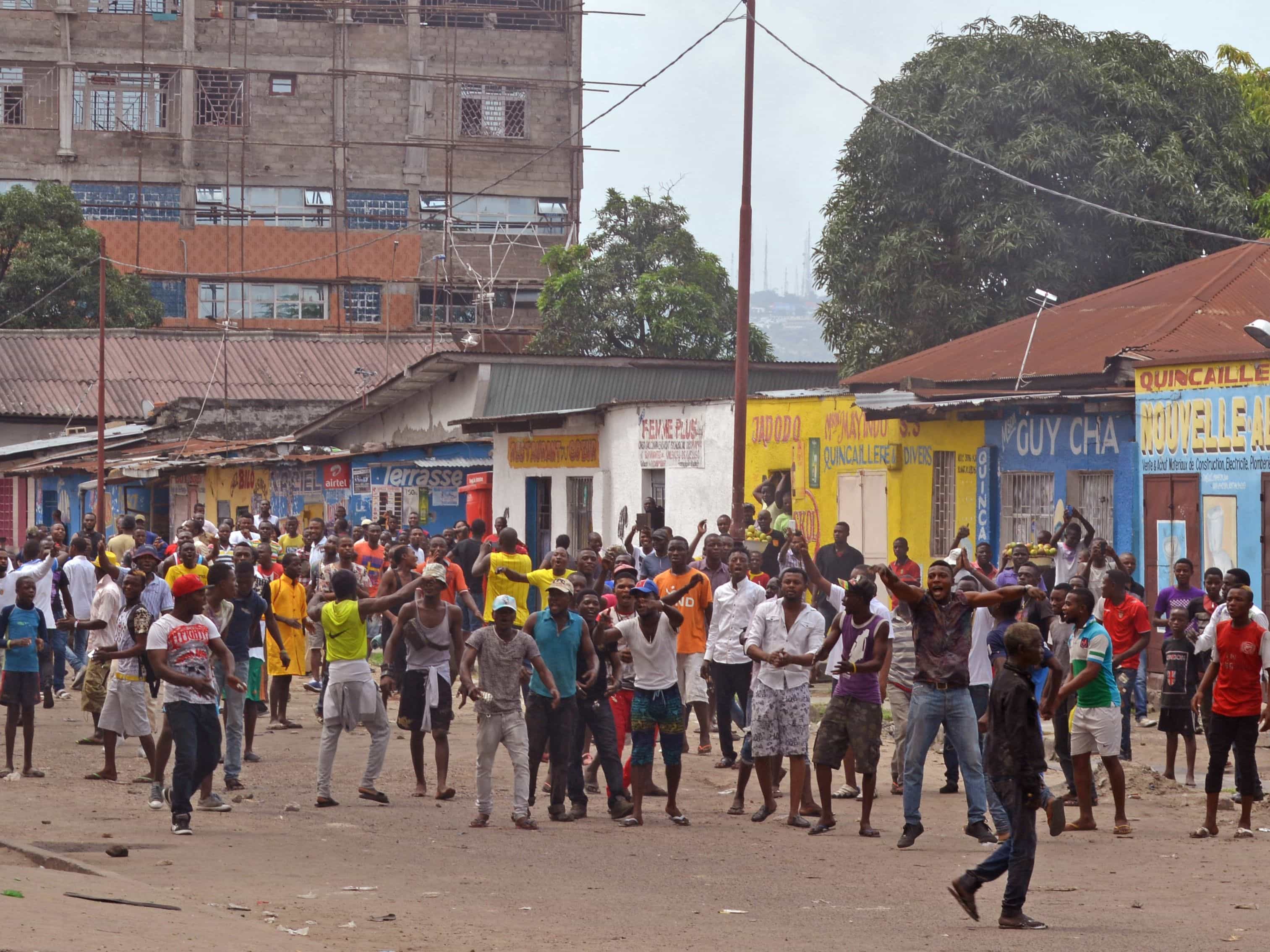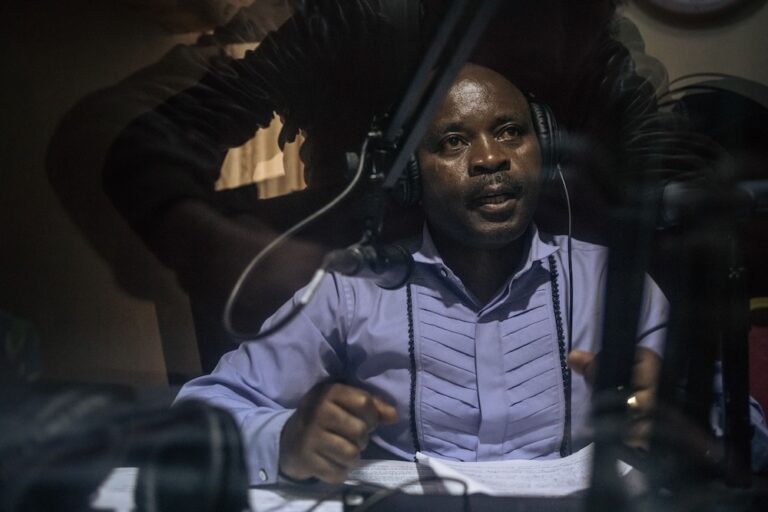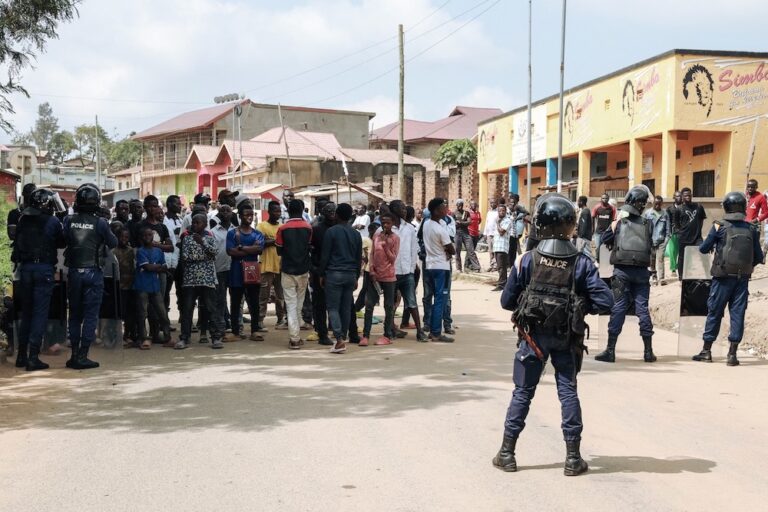In the months leading up to local elections in DRC there have been weeks of internet outages, social media blocks and closures of media outlets.
Journaliste En Danger (JED) has called on the government of the Democratic Republic of Congo and the security and information services that report to it, to loosen the noose around the media and independent journalists currently suffering under different political, economic and judicial pressures. JED asks that Congolese authorities re-open the dozen or so media outlets currently closed, and declare a moratorium on the arrest of journalists for doing their work.
A few months before major political events – including local, legislative and presidential elections – the media has come under high surveillance by security forces. This began in January, with long weeks of internet outages and social media blocks, and the closure of several media outlets covering the demonstrations led by the opposition.
In total – since the beginning of the year – at least 52 different cases of freedom of information violations were recorded, the most egregious being:
1. The assassination of Soleil Balanga, a journalist at the Community Radio station of Monkoto, broadcasting from Monkoto, in the province of Equateur (northeastern Congo) on April 16, 2015. The journalist’s throat was slashed for having announced the departure of the perpetrator’s father from the hospital’s management team. Today – despite the perpetrator’s arrest for this heinous act – no meaningful progress has been made in the judicial proceedings.
2. The 11-month prison sentence given to Mike Mukebayi, Director of “Congo News” after 7 months in custody. The journalist has been the subject of judicial proceedings since August 2014 for defamation, following the publication of an article which he did not author.
3. As of November 14, 2014, several radio stations broadcasting in Béni and Butembo, in the province of North Kivu have been closed by the Ministry of Media. Radio Ngoma FM, Radio Liberté (RALIB), Radiotélévision Rwanzururu (RTR), Radiotélévision Graben and Radio FOURU stand accused of complicity with armed rebel groups and broadcasting programs and messages that incite the population to revolt against Congolese authorities and the United Nations mission (MONUSCO).
4. On January 16, 2015, the National Information Agency (Agence Nationale des Renseignements –ANR) cut the broadcast signals of Canal Kin TV (CKTV) and Radio Télévision Catholique Elikya (RTCE), without giving prior notice. These stations – both broadcasting in Kinshasa – are accused of broadcasting the opposition’s message “calling the population to protest against the proposed elections law” that would likely prolong the mandate of the current President, Joseph Kabila.
5. The closure, as of November 24, 2014 of Radiotélévision Lubumbashi JUA (RTLJ), a private station broadcasting in Lubumbashi in the province of Katanga. This station belongs to Mr. Jean-Claude Muyambo, former executive of the presidential camp, now a member of opposition after several statements against the constitutional review that would allow President Joseph Kabila to run for a third term.
6. The closure, as of April 23, 2015, of all radio stations broadcasting in Moanda, a city situated more than 200 km from Matadi, the capital of the province of Lower Congo (south-west DRC) by the local security committee following the broadcast of reports related to demonstrations against the climate of insecurity maintained by elements of the armed forces.
In view of the foregoing – which emphasizes the general sentiment of insecurity of journalists and the media – JED urges all those involved in the electoral process to rigorously respect the rights of journalists and media outlets to work in complete freedom, independence and security and to create conditions for adequate and objective coverage of the political events in progress.



